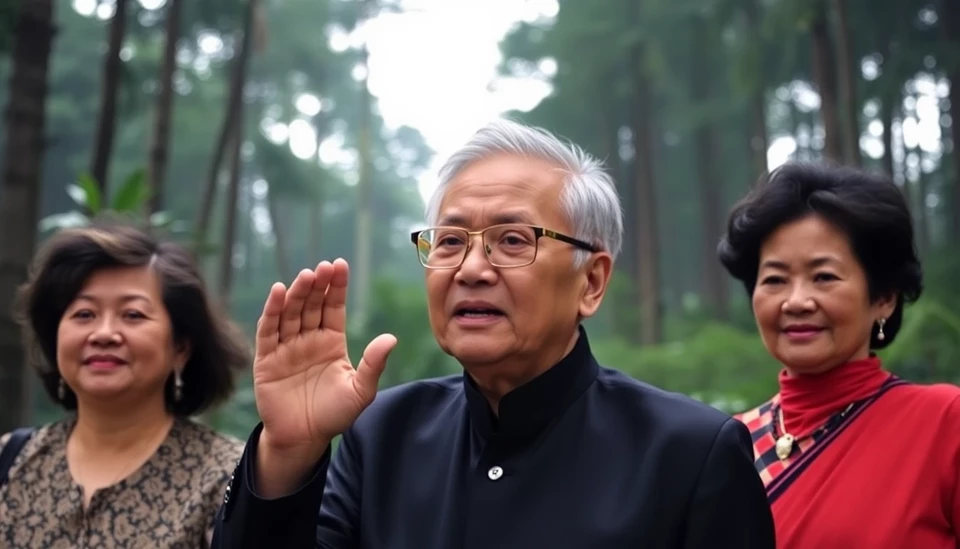
The Tanoto family, one of Asia's wealthiest clans, faces serious allegations of engaging in deforestation as they expand their business interests through green debt financing. This controversial move has sparked criticism from environmentalists and raises questions about the real motives behind their eco-friendly initiatives.
In an effort to propel their business model toward sustainability, the Tanoto family has turned to green bonds—financial instruments aimed at funding projects that deliver environmental benefits. However, reports have surfaced suggesting that while they promote a green image, their operations are linked to significant deforestation in Indonesia, where much of their business is concentrated.
The family is best known for their ownership of Royal Golden Eagle, a conglomerate involved in various industries, including pulp and paper, palm oil, and textiles. Critics argue that the family’s aggressive expansion in these sectors has led to vast tracts of rainforest being cleared, threatening local biodiversity and contributing to global climate change.
According to recent investigations, the Tanoto family’s ventures have allegedly encroached on protected areas and indigenous lands, violating both environmental regulations and the rights of local communities. NGOs and activists have called for greater accountability from the family, urging investors to reconsider their support for enterprises entangled in ethical and ecological misconduct.
The situation has also drawn attention from the international community, particularly as the world grapples with the urgent need to combat deforestation. Environmental experts emphasize that any gains in corporate sustainability initiatives could be overshadowed if companies continue to rely on operations that actively degrade the environment.
As the Tanoto family integrates green bonds into their financing strategies, the juxtaposition of their environmental claims against on-the-ground realities continues to raise eyebrows. With increasing scrutiny from both media and ecological watchdogs, the family’s ability to maintain its reputation may hinge on its response to these allegations and the veracity of its sustainability commitments.
In this complicated landscape, the Tanoto family's next steps will be closely monitored by investors and activists alike, as stakeholders demand transparency and genuine contributions to environmental preservation.
As the fallout from these controversies unfolds, the Tanoto family must navigate the delicate balance between profitable business practices and a commitment to environmental stewardship, which is becoming increasingly non-negotiable in today’s market.
Only time will tell if the Tanoto family can reconcile their business actions with their proclaimed green ambitions, or if they will face further backlash and potential repercussions for their alleged role in environmental degradation.
With the mounting pressures from society and the planet alike, the eyes of the world will remain focused on this influential family and their impact on the ecological landscape of Indonesia and beyond.
#TanotoFamily #Deforestation #GreenDebt #EnvironmentalImpact #SustainableBusiness #ClimateChange #CorporateResponsibility #GreenBonds
Author: Megan Clarke




